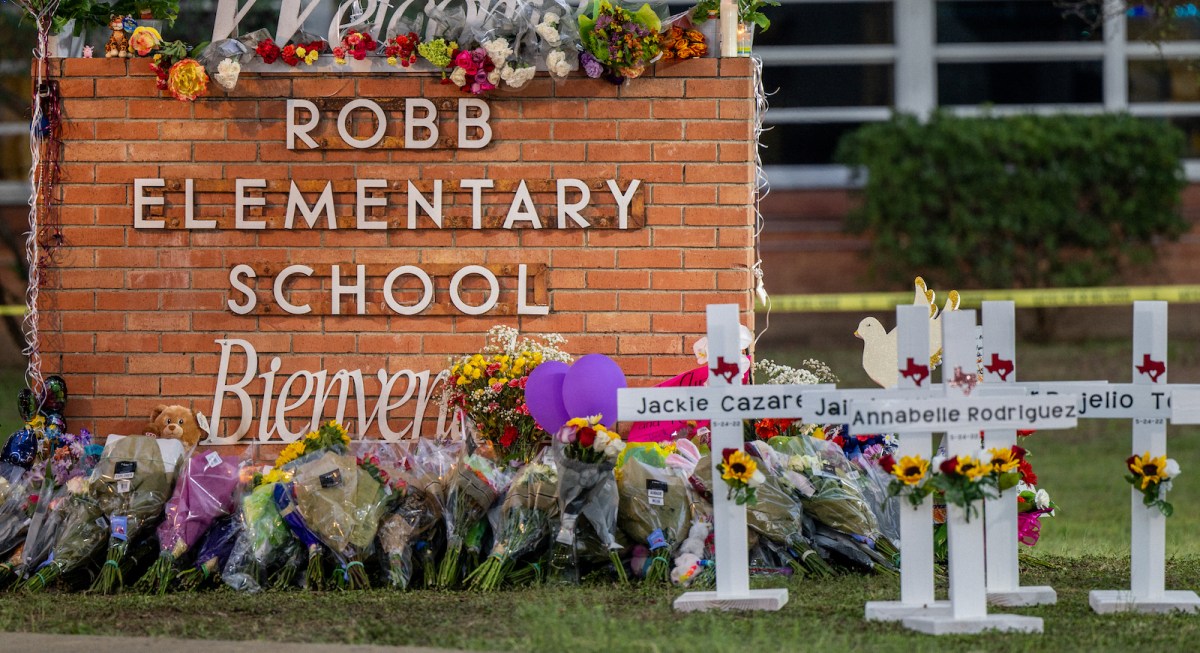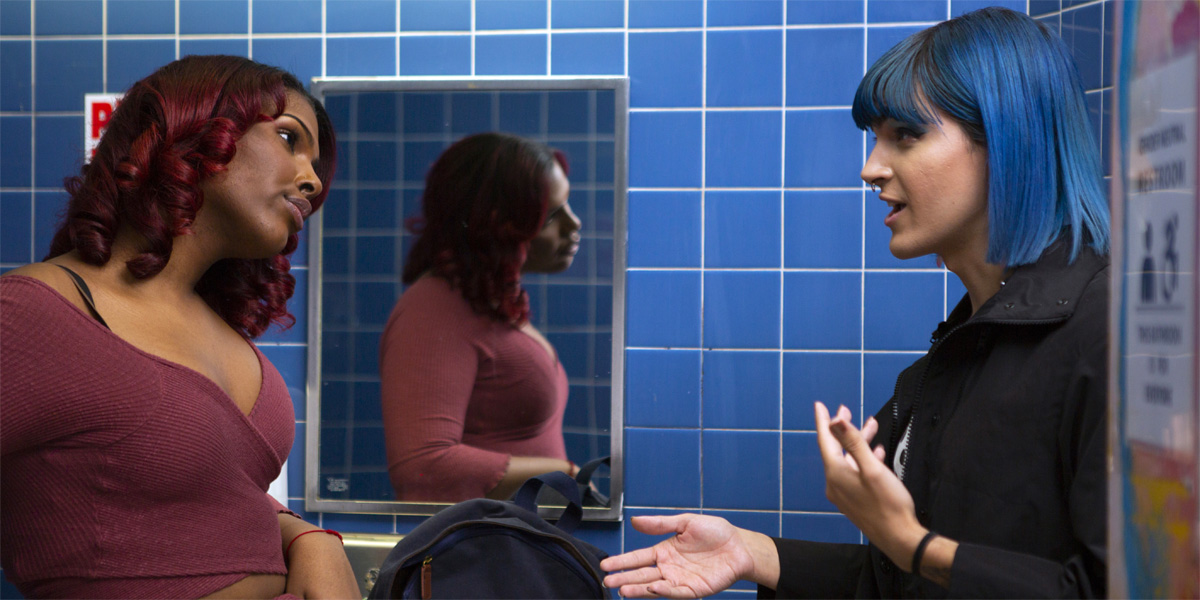Alice Motes
When I went from a rural farming community in south Florida to the liberal feminist homosexual agenda that is Smith College, needless to say a lot of things changed. That first year was a whirlwind of new exciting queer and feminist experiences. So, naturally as a tomboy-for-too-long gender weirdo, I enrolled myself in the first sociology class about sex and gender I could get my hands on and hungrily devoured it. It wasn’t until after the class that one of my friends told me the professor was a lesbian. My brain exploded. But she’s not butch! And she has kids?! Wait, what? Even though I was being exposed to kids my age of all sorts of gender presentations and orientations and even though I had just taken this gender and sexuality class I still was assuming that this woman was straight! This was the moment when I really started to examine and dismantle my understandings of sexuality and gender presentation (with a hearty dash of ageism awareness to boot).
I didn’t realize it until Rachel asked me about this, but I think that this professor’s approach in the classroom with queer issues has shaped the way I deal it when I’m teaching Sociology in grad school. She never disclosed her queerness and while some might say that I don’t have to disclose my queerness since I am so visibly queer, I resist the urge to share that. Maybe it’s my privilege as someone so visibly queer to not feel that obligation to disclose. A friend of mine who says her students assume she’s straight says she always comes out to her students at some point as it comes up naturally, but for me there is something about not making it personal – like this is and should be legitimate subjects of conversations without it being personal for me. Ultimately, I think this dynamic is rooted in the idea that queers have sexuality and that an agenda follows from that – like straight people don’t have sexuality or an accompanying agenda! Like maybe even though I read really, really gay that if I don’t disclose it and try to hit all sides of the argument I can be just ambiguous enough that these kids won’t immediately dismiss me as having a personal agenda. So, in a way my goal is to upset my students expectations about me based on my gender presentation just like my professor did.

Vanessa
I’ve always thought of my queer identity as very tied up in queer academia, for better or for worse, because as soon as I kissed my first girl I made it a priority to enroll in as many Gender Studies classes as I could at my school, New York University. The queer community at NYU – and in New York City in general – is large, but I was intimidated to approach most social situations as a newly maybe out queer girl, especially considering I had long hair and a track record of kissing only cis men and identifying as straight. The classroom was an easier gateway, for me, to start exploring the feelings I thought I might be having. And the Intro to Gender and Sexuality Studies class was the perfect place to start.
I had heard from many students, both gay and straight, about the professor who taught the class. People said she was brilliant, funny, and gorgeous. People were right. From the moment I nervously took my seat in the large lecture class at the beginning of the semester and the professor walked in, taking long confident strides to the front of the room, I felt confident that I was in good hands. The syllabus made me so excited; it was filled with Michel Foucault, Leslie Feinberg, Audre Lorde, Andrea Smith. I’d read some of the texts, only heard about others. I hungrily continued to peruse the syllabus. Each week the professor had listed “themes” we would deal with along with the texts we would be reading: theories of desire, the politics of sexuality, queer critiques of second wave feminism, gender and performativity, “homes” vs. “houses”, intersectionality, colonial violence, homonormativity… my head was swimming, but I couldn’t wait to dive in. I was having a lot of anxiety about my own authenticity at the time – the first girl I ever fell in love with was convinced I was a “confused straight girl,” and I didn’t have much “proof” to convince her – or myself – otherwise. I wanted to learn everything. This class seemed like a good place to start.
I know that queering the academy can be tricky, and I know there is innate privilege in learning about gender and sexuality studies in a classroom in the ivory tower rather than from learned experiences in the world. But if anyone could teach the subject matter in honest, nuanced, and non-exploitive ways, it was this particular professor. She had been a member of the queer community, both personally and academically, for a long time, and she brought a lifetime of intersectional lived experiences to her classroom lectures (and to her books, which I found and hungrily read on my own time). She became a role model in my mind. She was beautiful, it’s true – I don’t want to dwell on that because it’s not the most important part at all, though her arm muscles were something of a legend amongst the students who took her class and when I lift weights at the gym I still, three years later, do so under the hope that one day I will have biceps that match hers – but as someone who had never really understood the concept of “having a crush on a teacher,” she made me realize what the big deal was when it came to that particular trope. It wasn’t just her looks that made me crush on her and admire her, though. She was no-nonsense, hilarious, and very kind. I stopped by her office hours a few times to parse out ideas she’d touched on in class and to ask advice about persuing a graduate degree in Gender and Sexuality Studies (which I obviously have yet to do) and she was always warm and attentive.
She was the smartest woman I had ever learned from; in the years since taking her class I’ve taught friends and lovers certain concepts that I learned directly from her, and whenever they express pleasure or excitement over learning the new thing I credit this professor. One of the biggest compliments an ex-girlfriend ever said to me was, “Well if you learned all that from one professor, it sounds like she did a really great job teaching you.” I hope she did. If I have soaked up even a quarter of the things I learned in that introductory class, I know I am a better person than I was before I took it.








Comments
When I was in middle school, life was super rough for me. I was a weird kid in a tiny semi-rural school where if you didn’t fit into any of the small places set aside for people, you were seen as worthless.
Enter Ms. Bein, my seventh grade English teacher. She challenged us. She called out my fellow students for talking crap. And one day, after we had read Ray Bradbury’s “All Summer in a Day,” she showed us a film adaptation of the short story.
Maybe she showed it to all her classes. Maybe there was a sad, frightened child every year who needed to see it as much as I did. But to me, as I sobbed in the darkness, it felt like she had put that film on just for me.
After class, the other students started to make fun of me for my tear-stained face, but all it took was a sharp stare from Ms. Bein to make them stop. Then she looked at me, and I saw in her eyes the knowledge of what I felt: the pain of being different, the loneliness of being misunderstood. In that moment I could see that I wasn’t really alone, and I saw a glimmer of the future, a future without my current tormentors, a future where I was strong enough to fend them off.
I remember seeing that film in school. It was just the saddest thing ever, and I didn’t understand why we had to watch something that was so sad.
I’d never read that story before. So, so sad. (Also my daughter’s name is Margot.)
This comment was beautiful. Thanks for sharing your story with us.
I remember I had a science teacher in the 8th grade who wore a tie to class every Friday. She just liked wearing ties and felt like if she wanted to wear one, she should be able to. I thought this was the coolest thing ever. She taught me that it’s okay to be myself, I can dress however makes me happy, and not to worry about what other people think.
I admittedly didn’t realize my queerness til 10 years later, but I certainly look back on that fist step.
1. smith college shout-out hell yeah
2. I just love teachers so this is great
These are the kinds of stories that remind me why I am on the path I’m on. THIS IS WHAT I WANT TO BE FOR SOMEONE. So many feelings.
EXACTLY.
One of the reasons I want to teach (high school) is so that I can be an out queer teacher. There were no out teachers in any of my earlier schools; it’s only now that I’m in college that I get to interact with queer adults. Having an out queer adult in my life would have helped loads in high school or even earlier.
My favourite high school teacher and I were very close. Ridiculously close. We co-directed the school musical when I was in grade 12, and every day after school I would sit in her office with her for an hour or two, just talking and sharing stories, until her husband came to pick her up. When I got in a big fight with my best friends that year, she was the one I went to cry to. She knew about all my boyfriends and crushes, and she told me the story of the one and only time she’d cheated on the man who is now her husband. She showed me pictures from her wedding and her honeymoon, and she gave a speech for me at my graduation. A few weeks before the school year ended, my mother even had her over for dinner, since I talked about her so much and she was such a major part of my life.
When I was in high school, I had no clue I was gay. She and two other teachers started a GSA when I was in grade 11, but they were worried about how students at the school would respond to it, so they kept it a secret for the first year, only approaching students individually who they thought might be interested, and I was one of them. She was an incredible ally. Her best friends were a gay couple, and she went to Pride with them every year.
We kept in touch for many years after I graduated. I’d go back and visit, and my first stop would always be her office. After my first year of undergrad, I even went back and help her direct the school musical that year. I realized I was gay 2 years after I graduated, and she was the 5th person I told. Before my sister, or my parents, or most of my closest friends, I came out to her. And as expected she was incredibly supportive, and has continued to be so.
Now, 6 years after I graduated, we still keep in touch via Facebook. She didn’t teach me how to be gay, but she definitely taught me that being gay was okay.
I have so many feelings about teachers! As anxiety-riddled kid/teen/half-adult thing, I have made connections with a few teachers who I still think about today. My art teacher freshman year of high school, my sophomore year english teacher and a performance art professor I’ve taken 3 classes with in college so far were/are instructors who just plain accepted me. They didn’t shut me out just because I didn’t talk much in class or get the best grades. They treated me like an adult and they let me just talk to them. They me became friends, to be honest. Them accepting me helped me come to terms with myself.
my wife has helped and inspired a few undergraduates over the years! yay for awesome teachers/instructors/profs everywhere!
Both of the English teachers for my IB classes in high school were queer. I had the curmudgeony gay Mr. Aitkens for two years, and he was wonderfully cranky but brilliant. He included numerous texts that dealt with explicit homosexual content, and that alone made me feel like being gay wasn’t a big deal in high school. It’s been years since I graduated, but I remember him fondly because of how he pushed me to do better (I ended up with a 7 or an A+ in IB English) and because of how frankly he presented issues of sexuality. I wish I could go back to high school now and let him know that I’m gay. I even know how he’d smile and gruffly say “Good one” to the news.
Now, as a TA, I’ve constantly come out to my classes in very normalized ways (“Oh, my girlfriend took that class! How are you finding it?”), and one of my students came out to me after class during Pride Week, thanking me for being so open about it and making her feel comfortable, even though she never planned on being out. As a result, I helped her join the queer group I was a part of. I’m a little disappointed now that I don’t have the same in-person teaching job at my new university, but in time, I’m sure to do the same as I continue in academia.
Well this inspired all of the feelings.
I have a 29-page single-spaced document trying to process my feelings for my high school English teacher. I was so entirely in love with her. Now we’re still besties, but the feelings are different.
Another teacher of mine has bought beer for me and my date (her also under-age student) and we gossip about our love lives even though she’s much older and it’s great cause we’re bros.
Ultimately, I think I project romantic feelings onto all of my awesome, badass teachers AND teacher/student dynamics onto all of my romantic relationships. Oops.
A teacher can affect more people than are in their actual class. Every student has friends, parents and siblings that are informed of nearly everything that happens in that kid’s life.
There was a long period of time where a large part of me knew that I was gay, without me really knowing, and so I absorbed everything gay-related without knowing why. It was during this pre-coming-out-to-myself phase that I heard about my younger brother’s teacher who was gay. She was in a relationship with a woman, and had told this to her pupils. My little brother innocently informed us of this, and my parents thought it obscene. “How inappropriate to involve children in your personal life”, they said, and I got furious. We, my brothers and I, got into a big argument with our parents, after all, we knew the spouses of all our straight teachers, we even knew of their straight extramarital affairs (without having been directly informed of these, of course. And yet, this was inappropriate!? I don’t think I was able to make a great argument at that age, but the experience was important to me because it was the first time I got angry over this issue.
Sometimes it’s important to get angry.
I had a few teacher in middle and high school who didn’t do any grand life-changing thing but who helped in just the occasional brief passing remark. With most of them it wasn’t even that they explicitly told us being gay was okay, it was just that they mentioned it neutrally and totally matter-of-factly. That was a big deal to me because I was still mildly homophobic because of the way my parents dealt with it. No one in my family was the hell/sin/abomination/disgusting type of homophobe, but they just emanated awkwardness and discomfort every time homosexuality came up. So mentions of homosexuality, no matter how mundane and unsexy, embarrassed me, because they clearly embarrassed my parents, and I got the message that it was something kind of dirty, like porn. My teachers being totally comfortable with it kind of shook me up and helped me realize that there was another way to look at homosexuality, a way where I didn’t have to be scared of it.
I also had a wonderful teacher in eighth grade who I’m still in touch with now, post-college. She was straight and cis but she had us watch a movie about a little girl who was trans (though often mistaken for a gay little boy), and how her family came to accept her. It was R-rated (mostly for language and the movie-raters being transphobic, probably), which was sort of a big deal in eighth grade.
Also one time the student teacher was having us describe pictures of random strangers (in French, it was a French class), and one student said (in French), “How do you say ‘gay’ in French?” clearly meaning it as a joke/insult (there was nothing in the picture to suggest anything about the guy’s sexual orientation). The student teacher kind of laughed and said (also in French), “I don’t know, that’s for French 3” (we were French 2). Normally the main teacher never said anything or interacted with us at all while the student teacher was teaching (which made everyone sad because she was our favorite), but when she heard this she interrupted the lesson and told us — in English! that was Srs Bsns — never to use “gay” as an insult, and that you couldn’t possibly tell from a picture whether someone was gay or not. She was rarely stern with us, but she saved it for really important things like that.
My AP English teacher wasn’t really an important person in my life on the whole, BUT she did some awesome things like explicitly pointing out to us that part in The Great Gatsby where the narrator has a gay hookup, and talking (in a positive, celebratory way) about how Walt Whitman was into dudes and wrote sexual stuff about them.
My college German teacher was a wonderful guy who wore sparkly nail polish to class, which I always admired him for. No one batted an eye, as far as I could tell, which was reassuring. I want to say he came out, in that casual when-it-came-up kind of way, but it’s a little complicated because he just mentioned his boyfriend a few times, but always in German, and in German the word for “boyfriend” is the same as the word for “(male) friend.” From context it was probably his boyfriend, but I’m not actually sure how my classmates interpreted it. Anyway, he’s moved far away to teach somewhere else now, but one of these days I kind of want to email him and thank him for being out and rocking on with his bad sparkly-nailed self.
And my favorite professor, also (probably) straight and cis, but he has a vaguely femme gender presentation that some students talk shit about behind his back, and he’s great at avoiding heteronormativity. He’s a linguist, so gender/sexuality issues don’t figure prominently in his classes, but one thing linguists do use a lot are examples, which traditionally are often sexist and super heterocentric (e.g. “Gentlemen prefer blondes”). So, for instance, the classic example of a performative speech act is the thing they say at weddings, but instead of saying “I now pronounce you man and wife,” he always says something gender-neutral, like “I now pronounce you a married couple” or “I now declare that you are married,” even though those aren’t things that actually get said much. He also gave a commencement speech to a whole bunch of people where he said he was “proud to be a Californian” because of its legalization of gay marriage. ALSO he gave a lecture on how “out” developed from a preposition/adverb to a verb (as in “to out someone”) and adjective (“he’s very out and proud”), and his example sentences included not only gay men but lesbians and even bisexuals. I was super impressed because honestly, the number of times I have heard bisexuality mentioned by straight people as anything other than a punchline or object of disparagement is very, very low.
Anyway there were mostly just a lot of tiny things that meant a lot to me, and I know this might sound kind of ally-cookie-ish, but it was all very understated and matter-of-fact and normal-feeling, not like “ooh look at me and how progressive I am.”
OH DEAR I HAVE WRITTEN A NOVEL.
I love this piece. I didn’t really have any queer teacher role models growing up, but I’m sure it would have made a difference if my teenage self had been able to see functioning queer adults in my real life. Now that I’m a teacher myself, I try to make sure that my lessons are as inclusive and queer-positive as possible because statistically, there will be at least some baby queers in my classes who are looking for that kind of reassurance from the adults around them.
The school I taught at last year was in small town southern Spain and I may well have been the only queer person my students had ever encountered. I hope I was able to be a positive role model for them, or at least show them that queer humans exist and there’s nothing wrong with that. Every little helps, right?
I wish I could say I had queer role models growing up. Instead, I had an amazing music teacher in high school that sheltered me and my girlfriend from the school. Coming out and dating a girl at an all girls high school at 15 was well… difficult. Our music teacher let us hang out in his classroom during lunch, giving us a safe space that was free from stares and bullying and whatever else was going on at the time. Things were still pretty awful most of the time, but having one place where we didn’t have to hide or fend off questions and attention was pretty much life saving.
I had so many fantastic teachers in my public middle and high school, despite living in a suburban town in a political “swing state.” These teachers included an English teacher who started each year by informing the class that she used the title ‘Ms.’, not ‘Mrs.’, because even though she was married, the last time she checked she wasn’t anyone’s mistress, the band director who lent me copies of books by Howard Zinn, a chemistry teacher who I don’t think ever actually came out to the class, but was widely known to be living with her female partner and their kids, and the “token (fiscal) conservative” teacher who was nevertheless obviously best friends with the aforementioned queer chemistry teacher. Right after I graduated high school I learned that my (in retrospect, transparently femme) kindergarten teacher was/is a lesbian, which was kind of mind blowing at the time because up to that point I had absolutely no idea that you could be into women and still wear skirts and makeup. Although these teachers weren’t necessarily teaching me lessons about being queer, especially because I wouldn’t even realize the possibility of having feelings for ladies until years later. But they did teach me to think about what being a woman meant to me and for my life, both politically and romantically, and how to be up front about who I was and what I wanted. I am so, so thankful for them.
The teacher who made me realize I might like women was a super attractive college professor, with whom I took a one-on-one tutorial on Oscar Wilde…
First off, thank you for your essay. I am a teacher, and I am always trying to figure out better ways to make my students lives better. I read your essay in that spirit, and wound up writing an essay of my own as a way of thinking about it. I am a newbie teacher, cis-gendered, and hetero. I am also a science teacher. I am trying to figure out how I can be a better ally, I’ve come up with a few thoughts, but I really, really want to learn how to be better. Maybe some of you can help me out?
http://ticholldpink.blogspot.ca/2013/10/how-can-cis-gendered-hetero-science.html
I loved this piece so much. It (and a particularly emotional song on Pandora) inspired me to write a letter to a teacher I had in high school. I doubt I’ll send it to her, but whatever. She was my phys. ed. teacher in 9th grade at my Catholic all-girls school. One day, a bunch of girls come into the gym cackling about witnessing a senior (who was also the president of the student council and openly gay) kissing another girl in the hallway. Being 14, not out, and terrified, I said not one word during this whole conversation. Our teacher walked in, over heard, yelled at everyone to be quiet, and sat us down with a lecture about how it’s okay if someone is gay and that doesn’t make them a better or worse person for it. She talked about her own friends who were gay and it helped me so much. Even though it would still be a few years before I came out, and she left for another teaching position by then, she made a huge impact on my life with just a few words.
Teachers can be really encouraging to a student without even knowing how much of a difference they make. My English teacher senior year of high school was so amazing. I’m pretty sure she was queer(but not positive), and she didn’t even really incorporate it into the class but just knowing that she was was a huge thing for me. Most of my class didn’t like her or the books we read or the essays we had to write. But I loved the books we read, I understood everything she was trying to say about them. I learned so much from her and I’m so grateful to have had her as a teacher.
Sometimes it’s as simple as being a safe person for queer kids. The safe professors at my (formerly Southern Baptist, currently General Mean Christian) university identified themselves with a small sticker on their office door. During an office visit I realized that my sociology professor was one of these people. At the end of the semester I hurriedly asked Dr. L if she knew of any LGBTQIA activities on campus that I might not have heard about, being a student isolated in the conservatory. She hooked me up with a group that was fighting for queer recognition and rights on campus. I didn’t get a whole new life or marry someone I met in that group or anything, but I started to learn how to ask for connection and how to come out in small ways.
I wish I could go back and retake that Sociology of Gender class during my sophomore year of college. I would have listened so much better and asked a lot more questions if I wasn’t scared of people finding out that I was gay.
So I just created an account after long-term lurking and reading and having many confused feelings about my own queer identity to say VANESSA are you talking about Stacey D’Erasmo? Because she was a huge thought/writing/living-changer for me, too. And if you haven’t read her stuff, I think you’d love it.